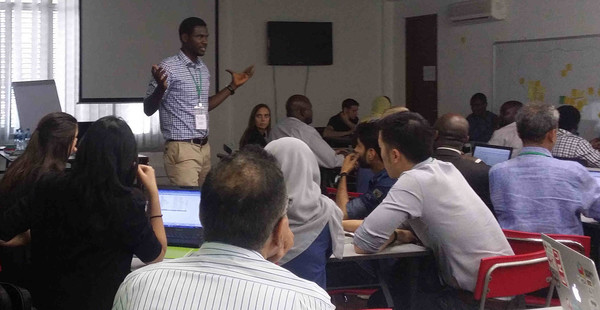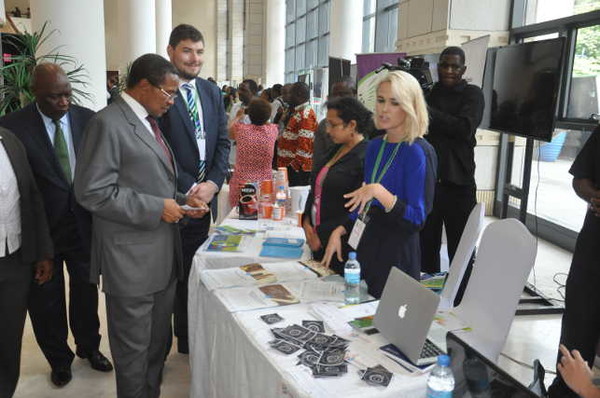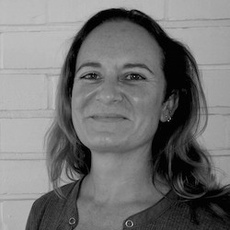The Data Revolution in Africa
The Data Revolution in Africa
Last month I was fortunate enough to attend the African Open Data Conference as a Fellow for the School of Data, a global network of trainers, who provide data literacy skills training to public sector, non profit organisations, civil society organisations and data journalists to better understanding the data processing pipeline. There is a wealth of open source tools for the scraping, cleaning and verification, and visualisation of data if one is only aware of them and how to use them.

In particular, African countries experience a shortage of practical skills, and yet, are climbing aboard the open data movement, which promotes the provision of open source data for advocacy, and citizen participation. The Africa Open Data Conference was held in Dar Es Salaam, Tanzania in September 2015, to share skills and learnings in the implementation of these policies, and processes. Heated debate surrounded topics such as whether the Data Revolution was just being paid lip service, or was producing any tangible results. The need for open public sector data, however, has clearly been identified, and in many countries is even being converted to policy.
The most interesting debate, for me, was kicked off by a comment from an American attendee, that there was absolutely no difference between the African context and the Western, that the open data movement in Africa might be a few years behind the West, but that the teething problems experienced at the various stages of development were the same. The question I would like to pose in answer to this casual approach is: how many public sector offices in the States or in Europe have no access to basic IT infrastructure like electricity? I would love to see the development of an international index of IT infrastructure levels, with a measure across all aspects of Information Technology Infrastructure, from electricity supply to enterprise level hardware and software solutions. This would certainly highlight the disadvantage of the African context.
Skills shortages and the ability to develop usable and useful public sector data aside, the debates and discussions were constructive, and the community was supportive of those who can benefit from the learnings and case studies of others.
The School of Data provided 2 intense training sessions in the days leading up to the conference, one specifically for Civil Society Organisations of Tanzania, and one for the conference attendees. The sessions were skill-shares around tools that support the data pipeline, including advanced data acquisition tools, data scraping tools like webscraper.io, data cleaning tools like Open Refine, and data visualisation with Excel pivot tables and graphs, Cartodb, and infogr.am.
 Adi Eyal of Code for South Africa presents some advanced data acquisition methods and tools
Adi Eyal of Code for South Africa presents some advanced data acquisition methods and tools
 Oludotun Babayemi of CODE (Nigeria) shares his knowledge (and energy!) on data visualisation strategy and tools
Oludotun Babayemi of CODE (Nigeria) shares his knowledge (and energy!) on data visualisation strategy and tools
For myself, the experience was one of the most rewarding I have ever experienced. The attendees of the training sessions were hungry for the skills, and so grateful for the experience. More than once I heard comments like “this has changed my life!”, and “if I knew of this tool before, it could have saved me months of work.”.
Indeed, I learned so much myself from my fellow Fellows, and I send a heartfelt salute to Nkechi Okwuone and Oludotun Babayemi of Nigeria, and David Opoku of Ghana. They took me in as the newest School of Data Fellow, taught me heaps, and supported me in so many ways. Many thanks also to Katelyn Rogers of the Open Knowledge Institute, for all the flight and accommodation arrangements, organisation of the team, and continual support and advice.
 Katelyn Rogers, Open Knowledge Institute explains the School of Data to President Kikwete of Tanzania
Katelyn Rogers, Open Knowledge Institute explains the School of Data to President Kikwete of Tanzania
And last but not least, many thanks to our Senior Fellow based in Tanzania, Joachim Mangilima, who filled the role of our informal host and showed us Tanzanian hospitality at it’s best.

